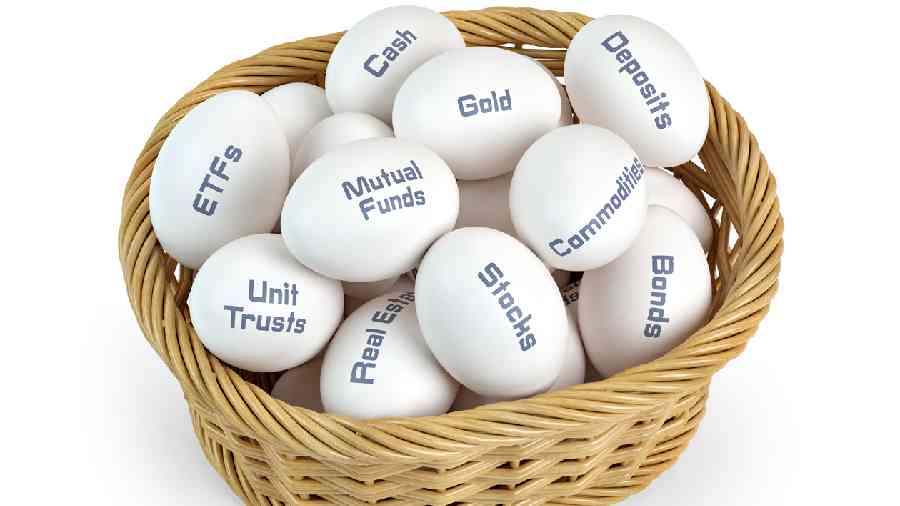At a time when inflation is at multi-decadal highs in several developed economies, it remains to be seen how economies will react to progressive tapering.
I feel the equity market will continue to remain volatile till the time the US Fed continues to believe that fighting inflation with increased rates is the most important thing.
In the meantime, the RBI too has been proactive in its approach to tame domestic inflation with rate hikes. Going forward, we believe there is room for short-term interest rates to go north from where it is at present.
Increased interest rates along with rising commodity prices are likely to pinch corporate India in general. The early signs of this were visible in the March quarter earnings where companies owing to a rise in input costs have reported margin pressure.
In certain sectors, companies seem to have passed on the cost to the consumers in the form of reduced grammage or by increasing the rate of the final product.
However, maintaining a balance between growth and profitability is likely to be a tough task. Hence, we believe that there will be segments that will be impacted and could see an earning downgrade in the quarters ahead.
On the other hand, commodity-oriented companies are likely to benefit, and hence an earnings upgrade in these segments can be expected.
Volatility worry
Post the recent correction, market valuations have moderated. However, given the uncertain times ahead, one cannot discount potential market volatility.
Future market triggers which may cause volatility include rising crude oil prices, aggressive monetary tightening and interest rate hikes by global central banks, a stickier inflation profile on the back of supply-side disruption, and uncertainty around the ongoing Russia-Ukraine war.
Institutional inflows
Another factor to watch out for will be domestic institutional investors (DII) inflows.
Over the past few months, DIIs have effectively counterbalanced FII selling in Indian equities.
In the month of April when FIIs sold Rs 20,468 crore, DIIs purchased equities worth Rs 22,371 crore.
Similarly, FIIs in May were sellers to the tune of Rs 37,663 crore while DIIs purchased equities worth Rs 27,360 crore.
As the market volatility spikes in the times ahead, it remains to be seen how retail investors will react. With the market valuation improving, we hope retail investors will stay put with their investments.
No one can guess how global economies will respond to quantitative tightening measures.
The road ahead calls for prudent investment strategies and it begins with adhering to asset allocation.
Try different baskets
For an investor, it is imperative to invest across various asset classes such as equity, debt, and gold.
The same can also be achieved by investing in asset allocation or multi-asset schemes that take exposure to various asset classes.
In case you are an investor considering making a lump sum investment, then you may consider asset allocation or multi-asset schemes.
In the medium term, investors who ignore risk management could be in for a negative investment experience.
Continue SIPs
Investors with ongoing SIP should continue with their investments and not be affected by short-term developments in the market.
Going forward, after a couple of rate hikes later, there could be a possibility that the environment could be much more conducive to risk-taking.
Stagger investments
Based on market capitalisation, within the mid and smallcap universe while several pockets have faced steep correction, we believe there is room for further downside as and when the market turns volatile.
An investor looking to invest in these pockets can consider staggering their investment over a period of time.
Export-oriented funds
As export-oriented companies stand to gain from a weakening rupee, investors can consider funds that are focused on exports and services as these pockets tend to be less affected in times of increasing cost inflation and also benefits from a weakening currency.
Consider dividend yield
Another interesting category is the dividend yield. At present, corporate balance sheets are in much better shape and overall leverage, especially in mid and small-cap companies, is at a decade low.
So, dividend pay-out looks sustainable at a time markets could remain uncertain.
Floating rate bonds
When it comes to debt, we believe investors should invest in floating rate category funds.
This is because of the inherent nature of floating rate securities to adjust to rising interest rates and coupons that accrue to investors keep rising as the benchmark or overall RBI rates move higher.
Floating rate bonds have a positive correlation with rising interest rates and, therefore, returns on floating rate bonds are positively aligned to rising rates scenarios.
The writer is ED and CIO, ICICI Prudential AMC










